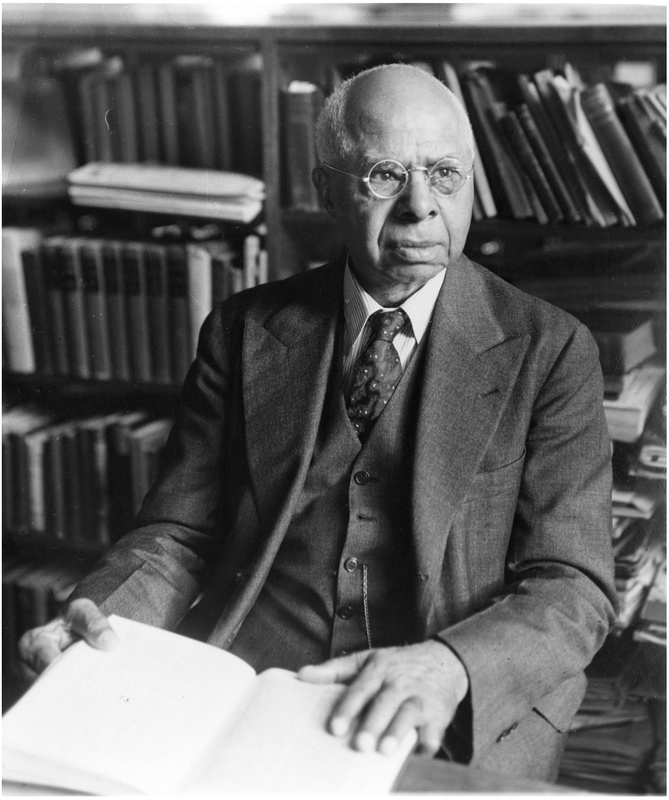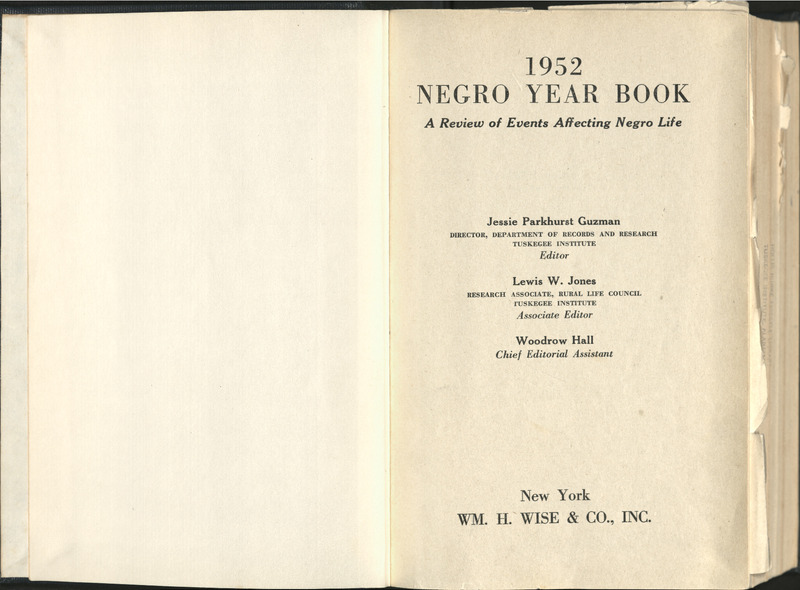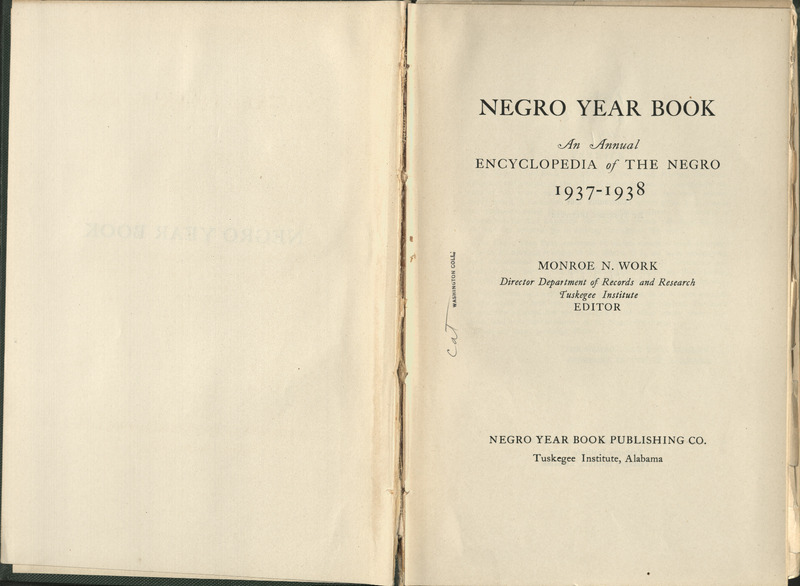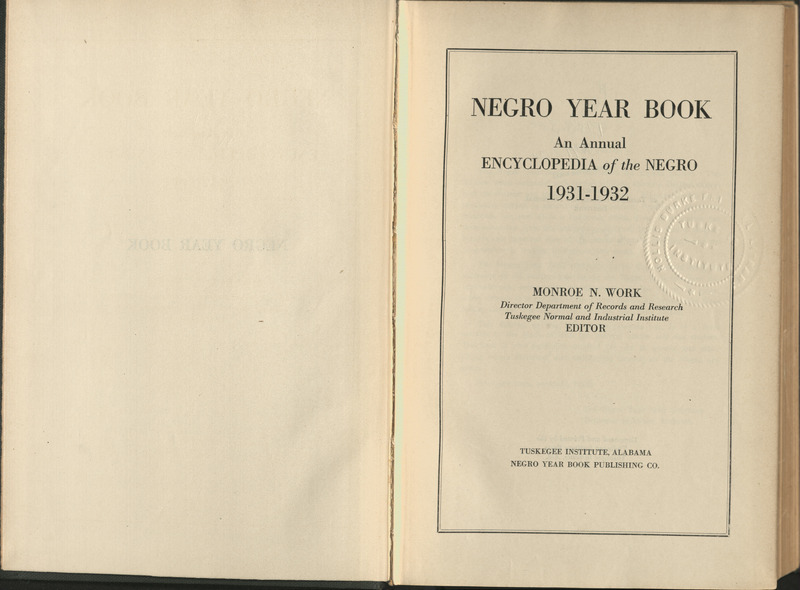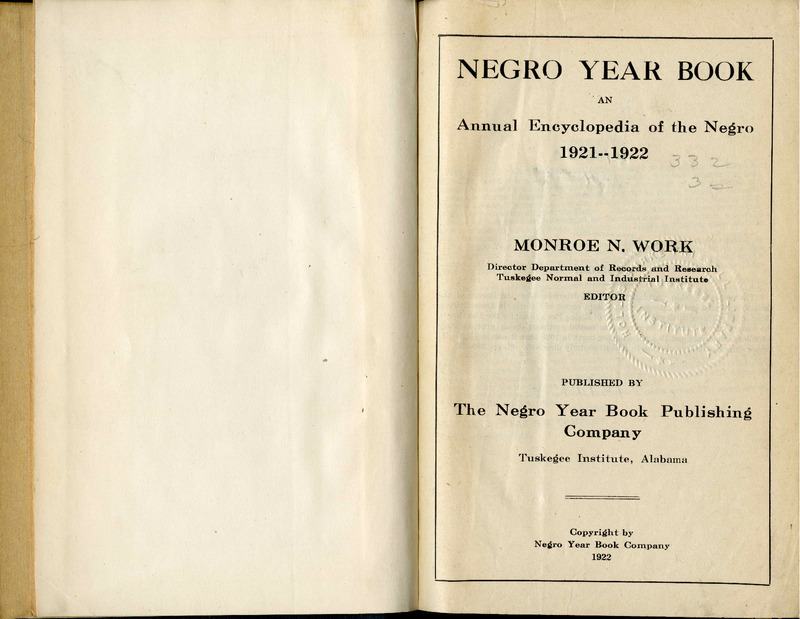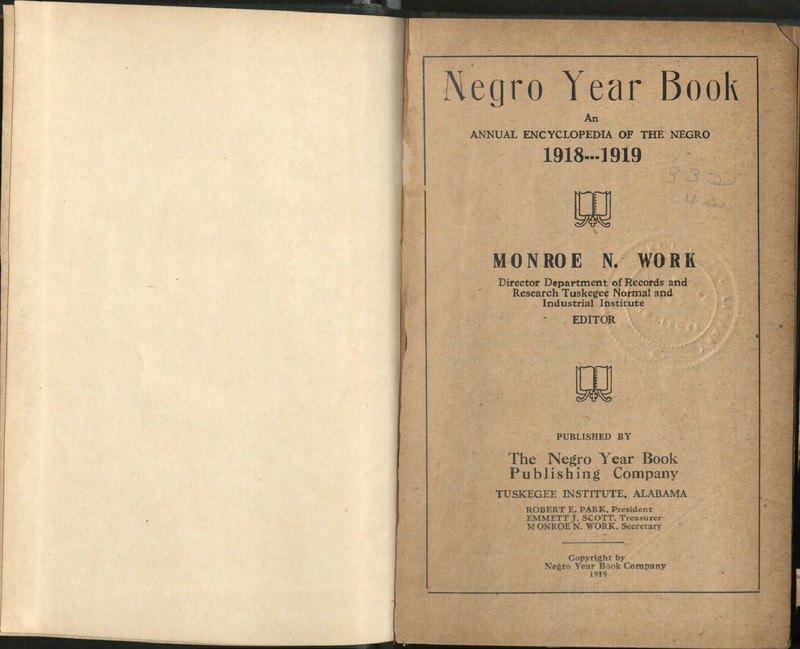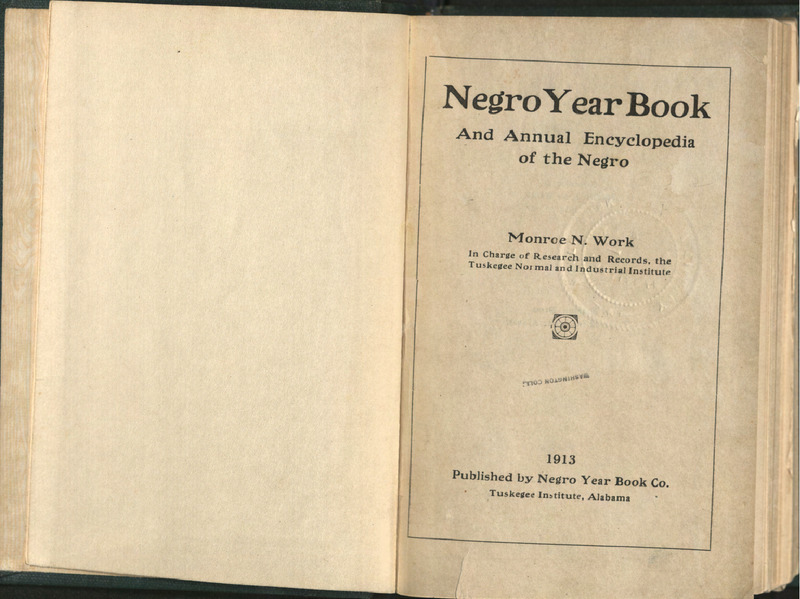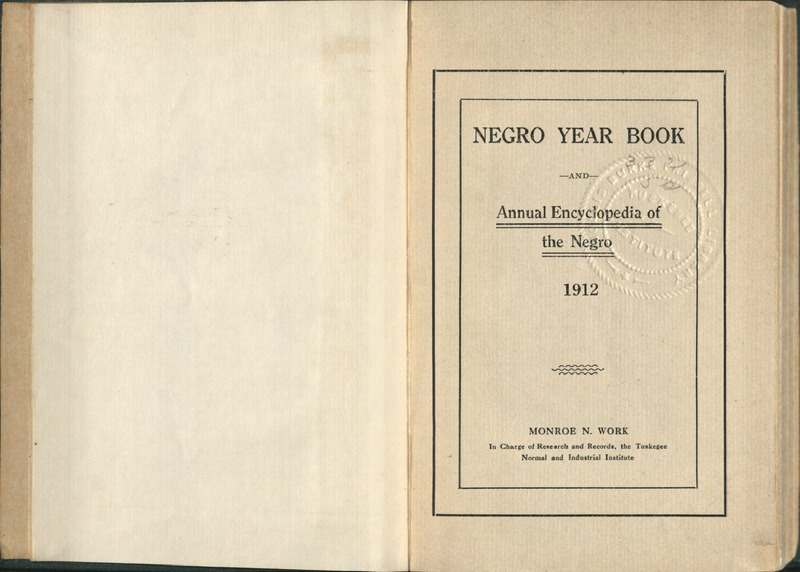Monroe Work, The Negro Year Book, and Tuskegee’s Archival Legacy
Preserving Black History
Tuskegee University has long been a hub for documenting, preserving, and celebrating African American life, achievement, and culture. At the heart of this mission is the work of Monroe Nathan Work, a pioneering sociologist, archivist, and records manager whose contributions continue to shape research, scholarship, and community engagement at Tuskegee today.
In 1904, at the request of Booker T. Washington, Work joined Tuskegee University as the founder and director of the Department of Records and Research. Over the next three decades, he gathered vital information on all aspects of Black life—from education and health to culture and civic engagement. Work also spearheaded National Negro Health Week, later incorporated into the U.S. Public Health Service in 1930.
The Negro Year Book: Chronicling Black Achievement
Digitized editions of the Negro Year Book highlight African American accomplishments across education, health, and culture.
Among Work’s most enduring contributions is the Negro Year Book, published at Tuskegee University from 1912 to 1952. This encyclopedic reference documented the history, struggles, and accomplishments of African Americans at a time when mainstream publications largely ignored these narratives.
Each edition combined vital statistics, biographical profiles, accounts of civic and cultural development, and significant historical events, painting a full picture of African American life. Work envisioned the Year Book as more than a collection of facts—it was a living document celebrating resilience and progress.
For more information on Nathan and Florence Work's contributions to the study of American lynchings,
visit this digital public history project.
From Records to Archives: Sustaining a Legacy
The work of Monroe Work laid the foundation for the Tuskegee University Archives, formally established in 1968 by the university’s fourth president, Dr. Luther H. Foster. Today, the Archives preserve over 600 collections from the university and Macon County community, including Work’s monumental projects:
-
Lynching Records (1881–1938)
-
Bibliography of the Negro in Africa and America (1928)
-
The Negro Year Book (1912–38)
Modern archivists are using digital technologies to make these collections accessible to the public, enabling students, scholars, and community members to engage with African American history in dynamic ways.
Continuing the Mission
Monroe Work's vision of meticulous documentation and public education continues to resonate at Tuskegee University. Students, researchers, and community partners draw on this rich archival legacy to fuel research projects, social justice initiatives, and public programming.
Through partnerships with local organizations, the university promotes literacy, historical awareness, and civic engagement, extending the spirit of empowerment that the Negro Year Book embodied. Though no longer in print, its ethos of truth-telling, scholarship, and Black achievement remains central to Tuskegee's mission, ensuring that African American stories continue to inform and inspire new generations.
Tuskegee University Collections
Discover rare documents, photographs, and artifacts that tell the remarkable story of one of America's most influential historically black universities
Explore Full Collection →Credits
<Insert Name>, <Insert Title>, Tuskegee University Archives
Further Readings
Nightingale Data Visualization Society. "Monroe Nathan Work: Education in the Negro Year Book." Accessed September 22, 2025. https://nightingaledvs.com/monroe-nathan-work-education-in-the-negro-year-book/.
"Activist Scholar-Practitioners in the United States and South Africa." Clinical Sociology Review 17, no. 1 (2022): 1-29. https://doi.org/10.36615/csr.v17i1.1283.
Sanders, Crystal R. "'We Very Much Prefer to Have a Colored Man in Charge': Booker T. Washington and Tuskegee's All-Black Faculty." Alabama Review 74, no. 2 (2021): 99-128. https://dx.doi.org/10.1353/ala.2021.0000.
How to Cite This Source
"Title," in HCAC Beta, https://hcacbeta.org/urislug [accessed Month, Day, Year]

